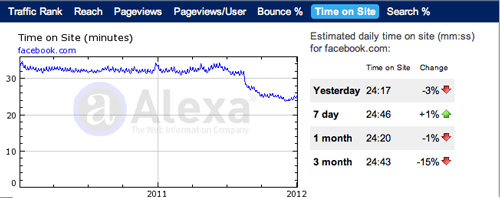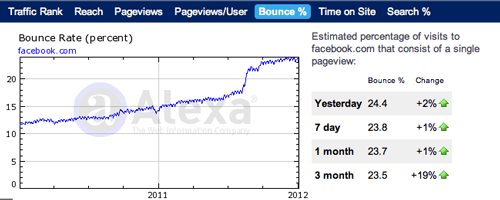Keep up with the latest hiring trends!
Recruiting in 2012 - Lessons from 2011 (Part 1)
2011 was a fantastic year for innovation in recruitment, with new products and services that we now can’t live without, and these will have a huge impact on what to expect for 2012. While 2011 was still a hard year for economies all over the world (especially Europe), and many perceived the recruitment market to be nosediving as more and more people flooded the job market, we’re hearing from all over that 2011 was the first year since 2007 that they’ve seen an increase, and were recruiting for themselves too.
 So for some trends for 2011, as we covered in our first webinar of 2012 yesterday (and on our brand spanking new Livestream channel to boot!), the search term “jobs” in Google in the UK saw a massive increase in 2011 versus other years, while in Ireland the term “jobs” stayed relatively flat. The term “job”, which is technically separate, saw a decrease from 2010.
So for some trends for 2011, as we covered in our first webinar of 2012 yesterday (and on our brand spanking new Livestream channel to boot!), the search term “jobs” in Google in the UK saw a massive increase in 2011 versus other years, while in Ireland the term “jobs” stayed relatively flat. The term “job”, which is technically separate, saw a decrease from 2010.
We can predict that searching Google for jobs is going to continue as a trend in 2012, so SEO has never been more important. While Google’s SEO terms are changing and adjusting to incorporate more localized search results, your local jobs will be found by local people. Have your careers page optimized so that your jobs can be found, because people are looking to Google to find them!
What about the Job Boards?
Job boards have certainly not gone away – in fact, they’ve had a bit of a growth spurt! This was expected for 2011 as there was an increase in the unemployment rate for Ireland and the UK, and financially Europe was dragged through the mud, so an increase in visitor traffic to job boards reflects this.
Job boards in the UK and Ireland (Reed.co.uk, Jobsite.co.uk, TotalJobs.com, Jobs.ie, IrishJobs.ie and Monster.ie) all saw an increase in traffic last year. 2011 was a funny year for agents and corporate recruiters who used job boards however, as many are reporting to us that roughly only half of their placements came from job boards, the rest coming from direct source or from referrals. And let’s face it, job boards are a fantastic tool to hire for bulk and general roles, but more and more companies job-specs are getting highly specialized and are picky about the candidate they hire, and whether a job-board will source that candidate is for debate.
What will this mean for 2012? We expect job boards to start regaining some footing in their pricing model as they now have hard statistics to say their sites saw traffic increases last year.
[box type=shadow] ADVICE FOR 2012: 2. Use job boards wisely and sparingly, they’re expensive! [/box]
LinkedIn versus Job Boards
LinkedIn had a whopper year in 2011 – the year it saw it’s IPO and it’s membership base increase to nearly 150 million. Suddenly, the secret was out: if you wanted a job or needed to increase your professional footprint, LinkedIn was the space to do it. Recruiters were rubbing their hands in glee – low-hanging fruit for difficult-to-fill roles were all about them.
In the UK, membership rose 78% to over 8 million users, which is roughly 26.5% of the available workforce, and in Ireland membership rose 105% from 300k to 605k, nearly one third of the work-force (and the third highest penetration of LinkedIn in the world, behind the Netherlands and the US). In 2011 the world embraced LinkedIn, and it will continue to do so in 2012. We predicted that LinkedIn will reach 300 million members by the end of 2012, and it’s clear to see why. Sure everyone’s doing it!
The fact that businesses are actively encouraging their staff to create LinkedIn profiles in order to increase their own profile, they’re effectively giving them permission to put their CV online. Recruitment in 2012 will be using LinkedIn more and more as a primary source, we believe, before they even advertise a vacancy.
[box type=shadow] ADVICE FOR 2012: Get to know how to use LinkedIn properly, you’ll reap the rewards with excellent candidates coming out your ears. [/box]
Facebook on the down low?
Every product has a life cycle, and Facebook is no exception. It’s growth has slowed in 2011, even though it hit the dizzying heights of 800 million members, and became the biggest social network in history. But while it launched a waft of new features throughout the year, its members are starting to wane in their loyalty. Page views per user and time on site, pretty much everything that Facebook had to boast about, have decreased over 2011. Time on Site went from an average of 33 minutes to now just 24 minutes, a 27% drop.

Page views had a spike in the summer to roughly 20 pages per visit, but fell dramatically again to around 12 pages per user. Facebook’s bounce-rate (the percentage of visits which consisted of a single page-view) has also had a steep increase, from an average in 2010 of between 12 and 15%, to nearly 25%.
Further privacy controversy on Facebook is rubbing current members up the wrong way, with viral messages asking friends to un-tick pre-ticked boxes on content shared becoming a regular appearance in our newsfeeds.

Facebook’s growth is largely in areas which didn’t have a high population on Facebook, like South-East Asia, South America and parts Africa, but Europe and North America have pretty much reached saturation point. What makes this news more pressing however is that while less people are joining, current members are becoming apathetic and are getting bored of Facebook. Could this spell a decline for Facebook?
[box type=shadow] ADVICE FOR 2012: Don’t put all your eggs in one basket – yes, Facebook is far from a MySpace scenario right now, but that could all change in 2012. Diversify your online presence for recruiting through to other social networks like Twitter and Google Plus, both of whom are far from maturing this year.[/box]
What are your lessons from 2011? How will these teach you to recruit better in 2012? Let us know your thoughts in the comments.